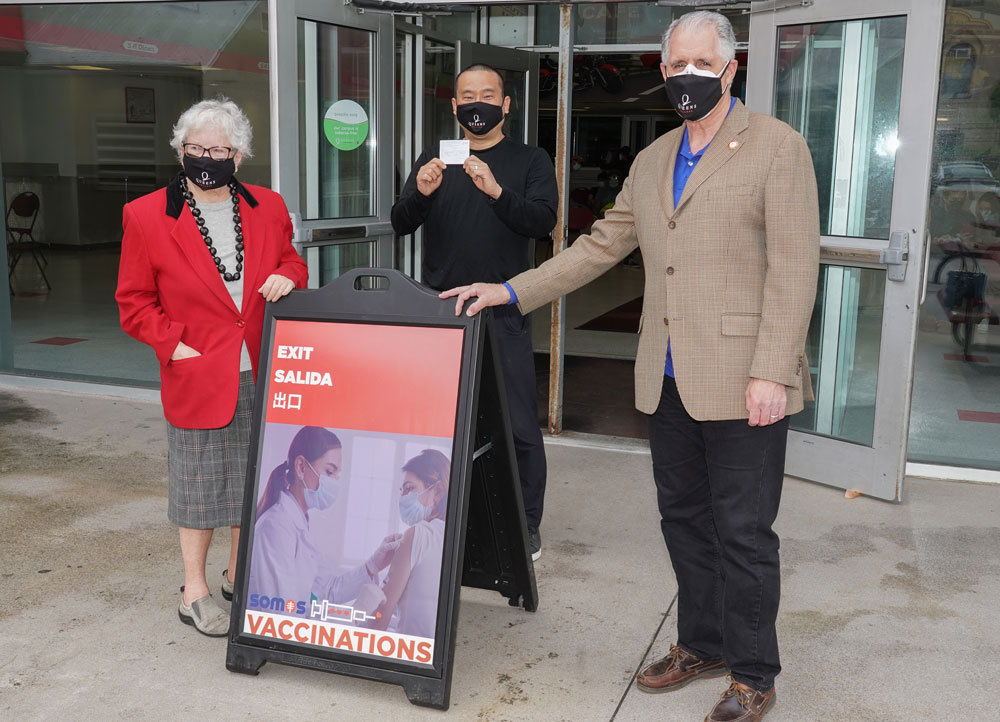The CDC and the FDA called on the U.S. to pause the use of Johnson & Johnson’s COVID-19 vaccine after six recipients, all of them women between the ages of 18 and 48, developed a rare, potentially lethal type of blood clot. Of the six reported cases, one woman has died and another is hospitalized, in critical condition.
According to a report from Michigan Health, all six women developed blood clots within two weeks of taking the Johnson & Johnson vaccine, and the CDC predicts the pause will last one week–before determining whether the Johnson & Johnson vaccine is safe to continue administering.
The withdrawal came just days after the Johnson & Johnson vaccine made its way to Queens College via a state-sponsored, pop-up vaccination site. As a Qview bulletin noted, QC President Frank Wu, Associate Provost for Academic and Faculty Affairs Alicia Alvero, QC student-athletes, and members of neighboring communities were among the over 1,200 people who received the Johnson & Johnson vaccine at QC’s Student Union building.
Despite the growing concern surrounding the Johnson & Johnson vaccine, Assistant Vice President for Student Affairs Jennifer Jarvis said that QC’s pop-up vaccination site set a good example: “I was one of several members of the Queens College community who chose to receive the Johnson & Johnson vaccine at the Student Union building on Saturday, April 10. In my leadership position, it was most important to me that I set an example for our students, and my decision was inspired by the guiding principle of a QC education — We Learn so That We May Serve.”
The temporary withdrawal of the Johnson & Johnson vaccine could slow down CUNY’s plans to reopen, as the single-dose shot has proven to be pivotal for a speedy vaccine rollout. Julia Greenberg, the Director of Governance and Financing for Open Society Foundations, contends that the Johnson & Johnson vaccine is particularly important for reaching disadvantaged, underprivileged communities, who may not have easy access to a two-dose vaccine regimen:
“The one-shot J&J vaccine is extremely important for reaching marginalized, underserved, often BIPOC communities, who already were disproportionately negatively affected by COVID-19. These communities have an understandable distrust of the health system and don’t always have the freedom to take the time off of work (including care work) for a two-shot vaccine regimen. Vaccines (and other health interventions) that are simple to administer are needed to increase access and gain trust.”
The temporary pause is nearing its end, as it was lifted in Europe after officials determined this week that the benefits of the Johnson & Johnson vaccine outweigh its risks. As QC hopes for a transition to hybrid learning this Fall, Jarvis confirms that the school intends on continuing to act as a COVID-19 vaccination site: “The CDC pause in offering the federally issued Johnson & Johnson vaccine is an example of the process working as it should. The college would be glad to continue serving as a vaccination site. Currently, no such plan is in place, though we have made our availability known to state officials.”
CUNY has set up a pandemic resource page for students; access it here.











